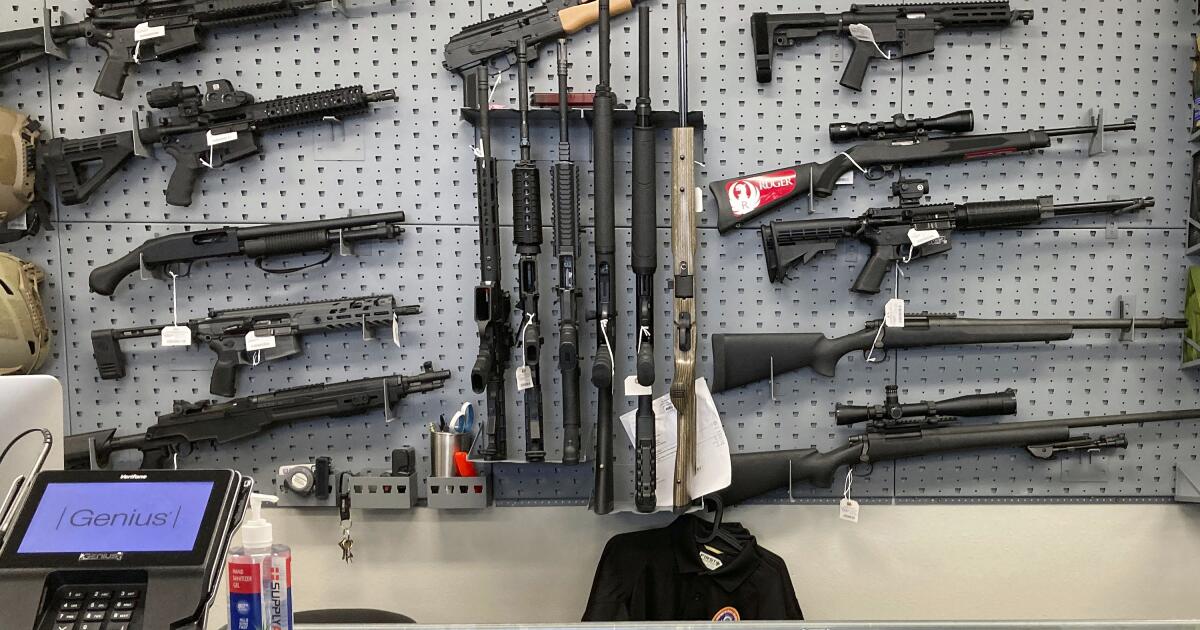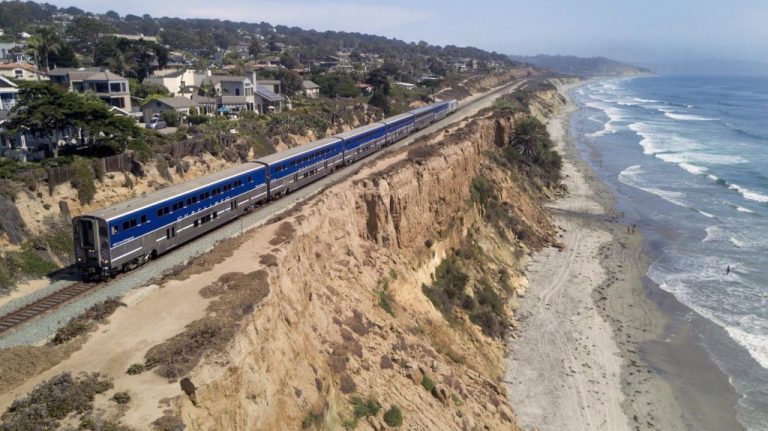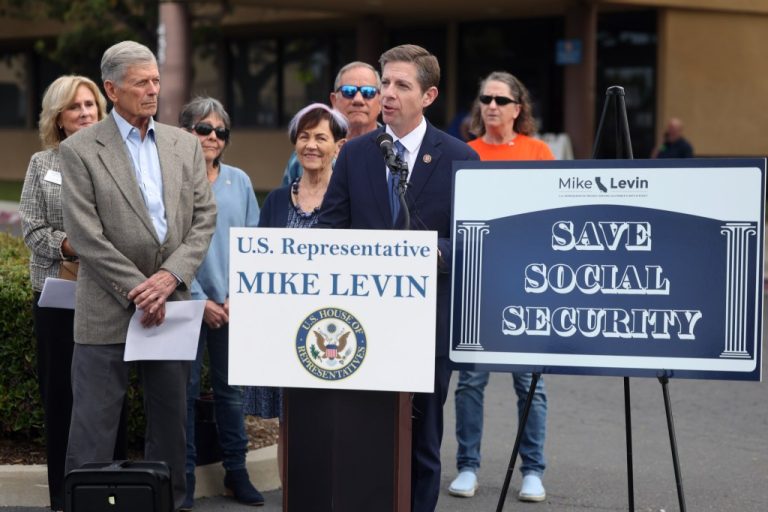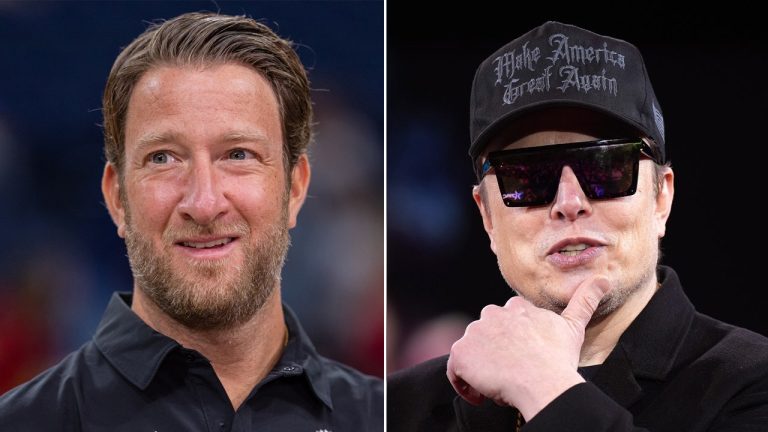
A federal judge in San Diego has temporarily blocked California Attorney General Rob Bonta from enforcing a portion of state law that gave Bonta, local governments and private citizens the ability to hold gun companies legally liable for gun violence.
U.S. District Judge Andrew Schopler issued a preliminary injunction late Wednesday afternoon in a 2023 lawsuit brought against Bonta by the National Shooting Sports Foundation, the largest firearms industry trade association.
The California law in question, known as the Firearm Industry Responsibility Act, requires gun companies to take several steps to ensure they implement “reasonable controls” regarding gun safety. One of the key portions of the law requires gun companies to not “manufacture, market, import … (or sell) a firearm-related product that is abnormally dangerous and likely to create an unreasonable risk of harm to public health and safety in California.”
The law gives Bonta’s office the power to sue gun companies that don’t comply with the law. It also gives local city and county governments and survivors of gun violence the ability to sue non-compliant gun companies.
Schopler’s injunction is narrow in that it bars Bonta’s office, but not local governments or private citizens, from filing such lawsuits while the legal challenge to the law is still pending. And it only pertains to the subsection of the law dealing with “abnormally dangerous” firearms.
Still, the trade group celebrated the injunction as a victory.
“We’re very pleased the court enjoined enforcement of this statute,” Larry Keane, National Shooting Sports Foundation’s general counsel and senior vice president for government and public affairs, told the Union-Tribune on Thursday. “This is undoubtedly a very important and significant decision.”
Bonta’s office said in a statement that it was pleased the judge had found that the industry group lacked standing to pursue some of its challenges. As to the portion of law it was enjoined from enforcing, the attorney general’s office said, “We disagree with that aspect of the court’s ruling and are considering our options for continuing to defend this important law.”
The National Shooting Sports Foundation’s lawsuit alleges that the Firearm Industry Responsibility Act violates the First Amendment, Second Amendment and other constitutional rights. Schopler did not rule on the constitutionality of the law, but he ruled that the trade group is likely to prevail on the merits of the case, or at the very least had raised serious questions about the merits.
The judge wrote that the National Shooting Sports Foundation’s “surest march to victory is under the banner of the dormant Commerce Clause,” which essentially bars states from regulating commercial activity that takes place outside that state’s borders.
He laid out an example in which a Tennessee gun manufacturer ships “youth-model rifles and AR-style long guns” — which meet California’s definition of abnormally dangerous — to an Arizona gun retailer, who then sells those firearms to an Arizona buyer.
“Hours later, a thief steals the firearms and drives into California to commit a gun crime,” the judge wrote in his hypothetical scenario. “Although the commercial transactions were conducted entirely out of state — and the lawful participants never set foot in California — the Tennessee manufacturer and Arizona retailer could both be sued under the ‘abnormally dangerous’ firearm provision.”
Wrote Schopler: “Because the ‘abnormally dangerous’ firearm rule reaches beyond California’s borders and directly regulates out-of-state commercial transactions, it likely runs afoul of the dormant Commerce Clause.”
Federal law largely shields gun manufacturers and dealers from lawsuits when their products are used in a crime. The California law now being challenged was modeled after a similar New York law aiming to bypass the federal regulations. The National Shooting Sports Foundation is also challenging the New York law.
The California law was also part of a response by Gov. Gavin Newsom to a Texas law that bans most abortions after about six weeks and gives private citizens the ability to sue providers and clinics as a tool to help enforce it. When the U.S. Supreme Court upheld the Texas law in late 2021, Newsom pledged to use that same authority to empower Californians to sue gun makers.
“California will use that authority to protect people’s lives, where Texas used it to put women in harm’s way,” Newsom said in a statement at the time.
State Assemblymember Chris Ward, D-San Diego, co-authored the original legislation. In a statement Thursday, he said it’s a sensible law and expressed frustration that the judge’s ruling would “(allow) gun manufacturers to escape accountability for the horrible harms their products have caused.”
Ward called the ruling erroneous and said it should be appealed.
“The firearms industry is the only of its kind that is exempt from being sued,” Ward said in the statement. “Litigation forced the tobacco industry from marketing to children and made the automobile industry improve its safety standards. Gun manufacturers should not be immune from any and all liability.”
Keane, from the National Shooting Sports Foundation, said his organization would be prepared to challenge any appeal and is seeking to move forward to have the law declared unconstitutional.





